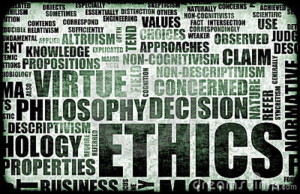
Ethics Series Part 1: Managing Current and Future Conflicts of Interest When Hiring Freelance Attorneys
 In this economic climate, law firms are paring down the number of new hires each year and managing their caseload with a very lean workforce. When cases heat up unexpectedly or when a law firm accepts a complicated new case, the firm may seek immediate outside assistance. Emerging trends in hiring show that freelance attorneys are often hired to fill in these gaps, which quickly leads to questions on how the ethical rules on conflicts of interest apply to this temporary contractual relationship.
In this economic climate, law firms are paring down the number of new hires each year and managing their caseload with a very lean workforce. When cases heat up unexpectedly or when a law firm accepts a complicated new case, the firm may seek immediate outside assistance. Emerging trends in hiring show that freelance attorneys are often hired to fill in these gaps, which quickly leads to questions on how the ethical rules on conflicts of interest apply to this temporary contractual relationship.
One of the most common questions freelance attorneys are asked is how can the law firm, together with the freelance attorney, manage current and future conflicts of interest. The Minnesota Rules of Professional Conduct (MRPC) do not include specific rules or references regarding the hiring of contract or freelance attorneys. But the customary duties and ethical obligations of an attorney set forth in the MRPC still apply to a freelance attorney as well as to the law firm that has the direct contact with the client.
To comply with the MRPC and ensure that no conflicts exist when the law firm hires the freelance attorney and that all potential future conflicts are easily identifiable, the law firm should require that all its freelance attorneys keep accurate records of projects they work on. It is especially important for freelance attorneys to fulfill their obligation to keep accurate records for conflict checks because freelance attorneys often work for more than one firm. A freelance attorney should include all projects on which that attorney works for any law firm in any capacity in the freelance attorney’s conflicts log.
To avoid imputing knowledge of other matters or other clients of the firm to the freelance attorney, case information provided to the freelance attorney by the firm should be limited in scope. Both the law firm and the freelance attorney benefit from this policy. As long as both the law firm and the freelance attorney keep accurate conflicts logs and compare and review them before the hiring process is complete, law firms do not need to worry about conflicts of interests when hiring a freelance attorney.
Stay tuned for future posts discussing whether a law firm must inform its client of the hiring of a freelance attorney, how to ensure that its freelance attorneys are covered by malpractice insurance, and how a law firm can bill its client for the work performed by a freelance attorney.














Nice post Susan! Every freelance attorney should check for conflicts. As you point out, imputed conflicts can be avoided by setting things up properly at the start of the freelance relationship. For example, my engagement letter explains that I won’t get access to the firm’s files or computer system, and that I’ll only be given confidential information pertaining to the project at hand.
I agree Karen, that it is a good idea to spell this out in the engagement letter. I’m thinking that I will actually add this language to the freelance contract.